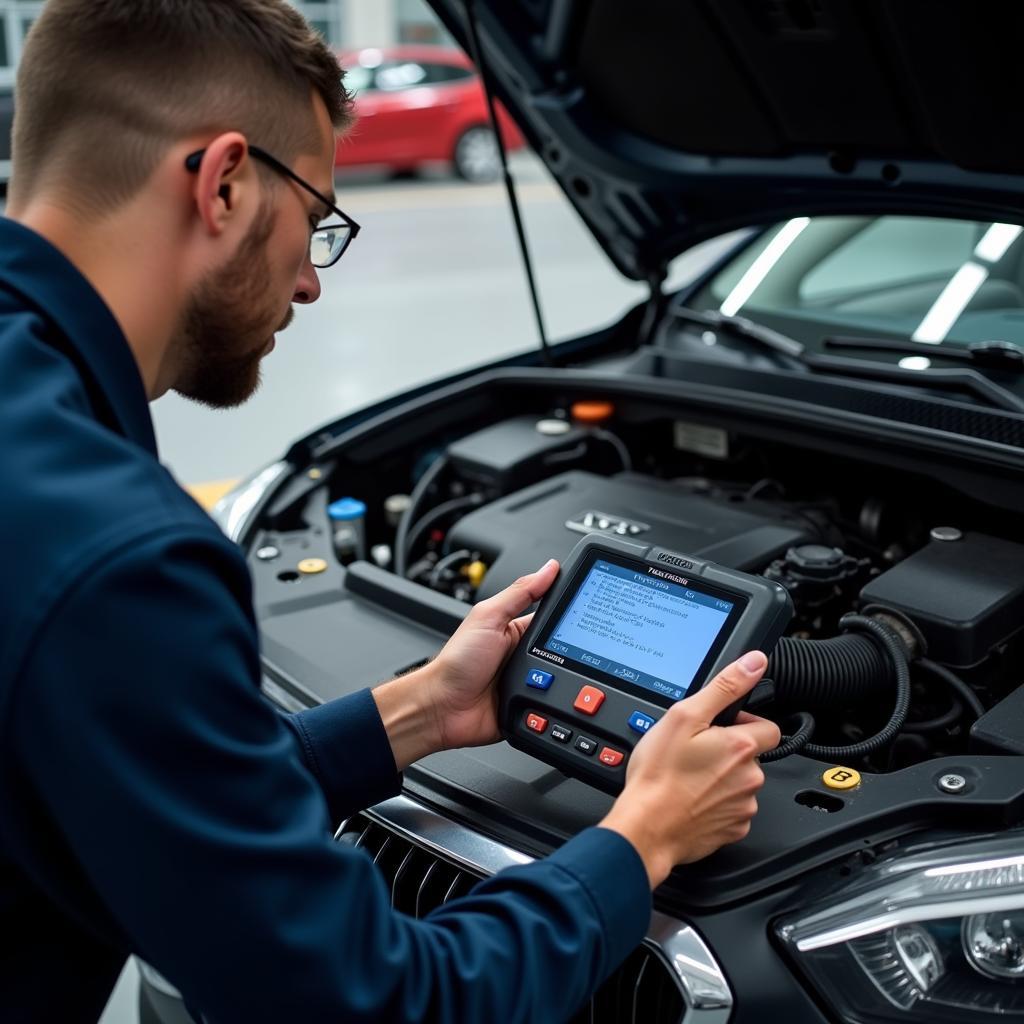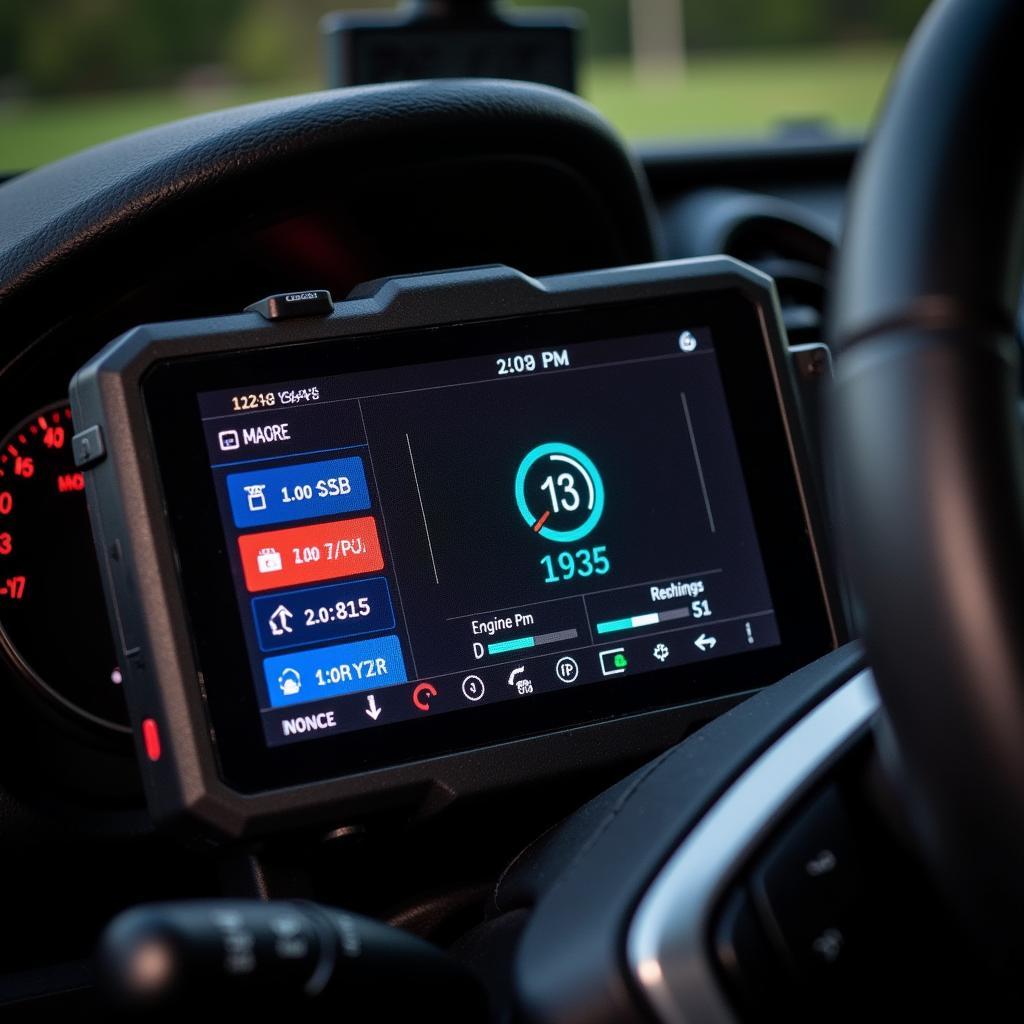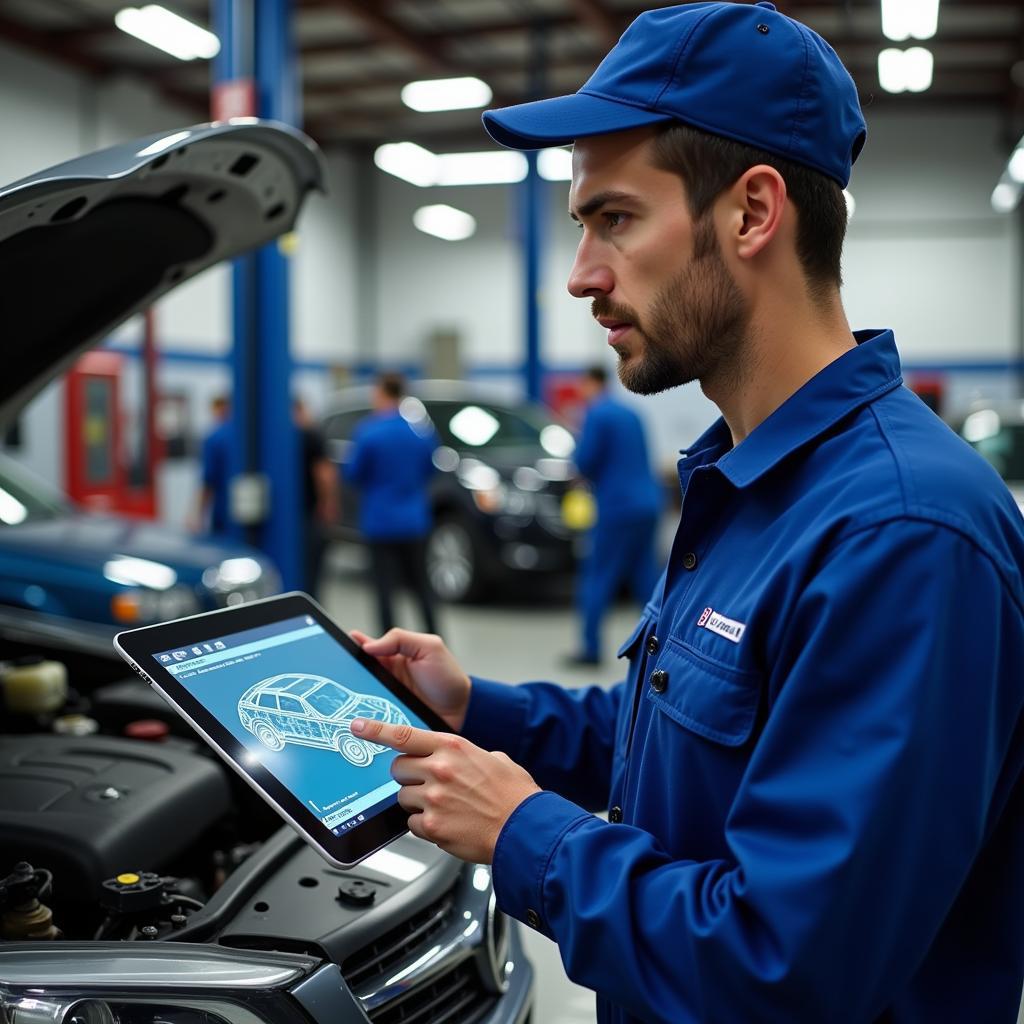Navigating the world of car problems can be overwhelming, especially when your vehicle decides to throw a tantrum in the form of a blinking dashboard light. Thankfully, diagnostic scanners for cars have emerged as essential tools for both car enthusiasts and professional mechanics, providing a window into your car’s electronic brain. But with a market saturated with options, choosing the right scanner can feel like learning a new language – one full of OBD-II protocols and cryptic error codes. Fear not! This comprehensive guide will equip you with the knowledge to confidently choose the perfect diagnostic scanner for your needs.
Understanding the Power of Diagnostic Scanners for Cars
Gone are the days of relying solely on a mechanic’s intuition to diagnose car troubles. Today, diagnostic scanners, also known as OBD2 scanners, act as powerful translators between your car’s computer and you. They plug into your car’s OBD-II port (usually located under the dashboard) and read the Diagnostic Trouble Codes (DTCs) stored in the vehicle’s computer.
Think of DTCs as your car’s way of crying out for help – each code corresponds to a specific issue, from a loose gas cap to a more serious engine problem. A diagnostic scanner deciphers these codes, providing valuable information about the problem and potential solutions.
Why You Need a Diagnostic Scanner for Cars
Owning a Diagnostic Scanner For Cars is akin to having a personal mechanic on standby 24/7. Here’s why:
- Early Detection and Prevention: Imagine catching a minor issue before it escalates into a major (and expensive) headache. Diagnostic scanners enable you to identify problems early on, allowing for timely repairs and potentially saving you hefty repair bills down the line.
- Empowerment and Knowledge: Feeling lost when your car acts up? A diagnostic scanner empowers you with knowledge. By understanding the DTCs and researching potential causes, you can make informed decisions about repairs, whether you’re a DIY enthusiast or prefer seeking professional help.
- Cost Savings: Frequent trips to the mechanic for a simple check engine light diagnosis can add up. A diagnostic scanner allows you to diagnose the issue yourself, potentially saving you money on unnecessary diagnostic fees.
- Enhanced Performance: Some advanced scanners can monitor various engine parameters in real-time, helping you optimize your car’s performance and fuel efficiency.
 Mechanic Using a Diagnostic Scanner on a Car
Mechanic Using a Diagnostic Scanner on a Car
Types of Diagnostic Scanners: Finding Your Perfect Match
Just like cars themselves, diagnostic scanners come in various shapes and sizes, each catering to different needs and budgets.
1. Basic Code Readers: Your Pocket-Friendly Sidekick
For casual car owners and those primarily seeking to decipher check engine lights, basic code readers offer an affordable and user-friendly solution. These compact devices typically display the DTCs and their definitions, allowing you to understand the nature of the problem.
Pros:
- Budget-friendly
- Easy to use
- Compact and portable
Cons:
- Limited functionality (primarily reading and clearing codes)
- May not provide in-depth data
2. OBD-II Scanners: Striking a Balance
Stepping up from basic code readers, OBD-II scanners offer a broader range of features, providing more detailed information about your car’s health. These scanners can read and clear codes, display live data streams from various sensors, and even provide access to manufacturer-specific codes.
Pros:
- More comprehensive diagnostics
- Live data monitoring capabilities
- Often include additional features like freeze frame data and readiness monitors
Cons:
- Can be more expensive than basic code readers
- May require some technical knowledge to fully utilize all features
 Car Diagnostic Scanner Display
Car Diagnostic Scanner Display
3. Professional-Grade Scan Tools: The Mechanic’s Best Friend
As the name suggests, professional-grade scan tools are the heavy hitters of the diagnostic world. These sophisticated devices, often used by professional mechanics, offer a comprehensive suite of features, including advanced coding and programming capabilities, bi-directional controls, and access to a wealth of technical information and databases.
Pros:
- Unmatched diagnostic power
- Advanced programming and coding functions
- Access to manufacturer-specific data and resources
Cons:
- Significant investment required
- Complex to use, requiring extensive training and knowledge
Factors to Consider When Choosing a Diagnostic Scanner for Cars
With a basic understanding of the different types of diagnostic scanners available, let’s explore the key factors to consider before making your purchase.
- Vehicle Compatibility: Ensure the scanner you choose is compatible with your car’s make, model, and year. Pay attention to the OBD-II protocols supported by the scanner.
- Features and Functionality: Determine the features that align with your needs. Do you require basic code reading, live data streaming, or advanced programming capabilities?
- User Friendliness: Opt for a scanner with an intuitive interface and easy-to-understand menus, especially if you’re new to car diagnostics.
- Software Updates: Diagnostic technology is constantly evolving. Choose a scanner that offers regular software updates to ensure compatibility with newer car models and access to the latest features.
- Budget: Set a realistic budget for your diagnostic scanner purchase. Prices can range from affordable basic code readers to high-end professional-grade tools.
- Brand Reputation and Reviews: Opt for reputable brands known for producing reliable and accurate diagnostic scanners. Reading online reviews from other users can provide valuable insights.
 Mechanic Using a Diagnostic Tablet in a Garage
Mechanic Using a Diagnostic Tablet in a Garage
Diagnostic Scanner for Cars: A Wise Investment for Every Car Owner
In an era where cars are becoming increasingly complex, a diagnostic scanner for cars is no longer a luxury but a valuable tool for every car owner. Whether you’re a seasoned DIY mechanic or simply want to take charge of your car’s health, a diagnostic scanner can empower you with knowledge, save you money, and keep your car running smoothly for miles to come.
Remember, the right diagnostic scanner for you depends on your individual needs, budget, and level of technical expertise.

Leave a Reply